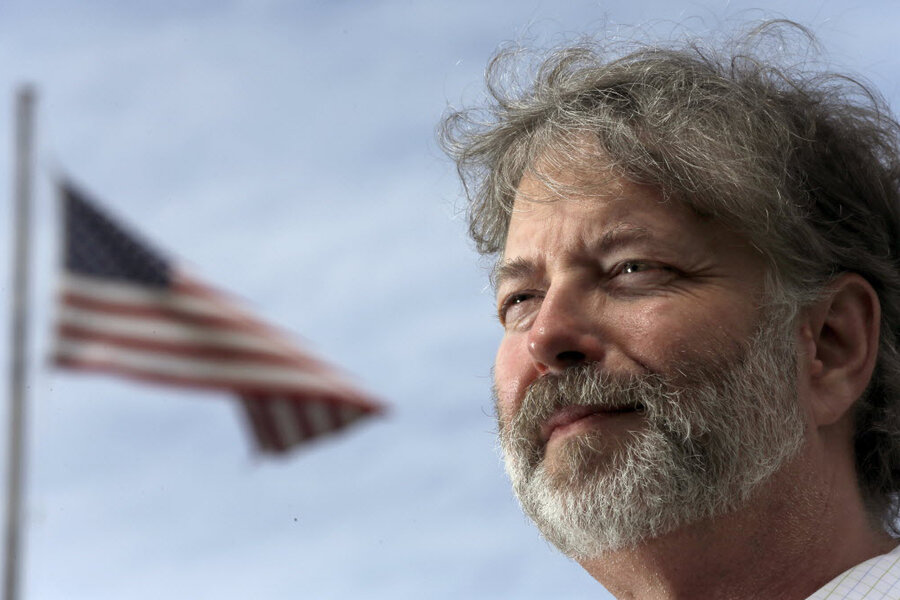Even on furlough, some Texans cheer Ted Cruz
Loading...
| Houston
Thanks to Texas' new senator, Dale Huls is out of a job, at least for now. Yet Huls has never been prouder that he voted for him.
"Without Ted Cruz this doesn't happen," said Huls, a NASA systems engineer who was among roughly 3,000 federal employees furloughed from Houston's Johnson Space Center after tea party Republicans triggered the partial government shutdown.
"This is something Americans have to get used to," Huls said. "Even if it affects your livelihood, you've got to stand up."
Perhaps more than anywhere else, Texas embodies the factors behind the shutdown: big government and the rebellion against it.
The state is one of the richest beneficiaries of federal spending, with its sprawling military bases, Gulf Coast seaports, and nearly 2,000-mile border with Mexico, which help account for more than 131,500 full-time federal employees. Only California, Virginia and the District of Columbia have more.
Yet Cruz's firebrand opposition to the nation's new entitlement program— the Affordable Care Act— and his campaign to stop government growth at all costs were also born here, and resonate deeply with many conservatives. In Houston, home to thousands of federal workers and to Cruz himself, the shutdown has brought the love/hate relationship with government into plain view.
Huls said he doesn't believe his job is a waste of money: "The public doesn't think much of federal workers these days, but we're people with car payments just like everyone else."
Still, he said of Cruz, "He's fighting for what he believes in and I'm taking a side."
But Jeff Darby, an investigator with the wage and hour division of the U.S. Labor Department based in Beaumont, east of Houston, said he thinks the showdown is more about political ambition than ideals.
"It is not anyone's patriotic duty to make Ted Cruz a household name," said Darby, a leader of the American Federation of Government Employees, who said he's "at home looking at my two dogs instead of working" because of furloughs.
A rising tea party star, Cruz was elected to the Senate in 2012. He carried Harris County by 18,000 votes, even though it includes Houston's minority population and government workers. He had been in office barely nine months when took to the Senate floor for a 21-plus-hour quasi-filibuster decrying the health care law, and then led an effort to block a budget deal with Democrats.
Cruz supporters tend to make a distinction between government workers and government. The former can be worthwhile; the latter is taking on too much and must be pruned to its essential functions. In a Pew Research Center poll this week, 41 percent of conservative Republicans expressed anger at the federal government, up from 32 percent in 2011 and just 5 percent in 2006.
But with the workers now being idled, some conservatives in Cruz's hometown are debating whether his tactics have gone too far.
Carolyn Hodges, the Houston-based president of the Texas Federation of Republican Women, said her group was split between conservatives supporting Cruz and others who want compromise. She said she personally "would like to see some movement on behalf of both" Democrats and Republicans on Capitol Hill.
NASA is the hardest-hit federal agency in terms of furloughs, with 97 percent of its 18,000-plus employees nationwide sent home. At Johnson Space Center, only about 200 civilians remain working because they protect property and life, like two U.S. astronauts and four others currently aboard the International Space Station.
"It's frustration that others don't understand because they're not directly affected," Bob Mitchell, president of the Bay Area Houston Economic Partnership, said of NASA employees sent home. He declined to comment specifically on Cruz saying, "We need him and he needs us."
Huls said he has enough savings to tide him over for at least two months without a paycheck. But he's worried about not making up money he borrowed from his retirement plan and says he may eventually have to talk to other creditors about extensions.
"But I don't consider myself a victim," Huls said. "I'm in this fight too and this is my role."
Pedro Rivera, a space center programs specialist who is working on the Orion capsule the U.S. hopes to send to Mars, said he too is willing to accept being furloughed even if the shutdown means a delay in Orion's scheduled test launch next year.
"I think it's a small price to pay for the future generations," said Rivera, who says he considers the new health care law un-American.
But space center financial management specialist Bridget Broussard-Guidry said her colleagues include single parents who can't afford a long shutdown.
"Even though you save for a rainy day, you don't know how long it's going to rain," said Broussard-Guidry, president of the local chapter of the American Federation of Government Employees.







